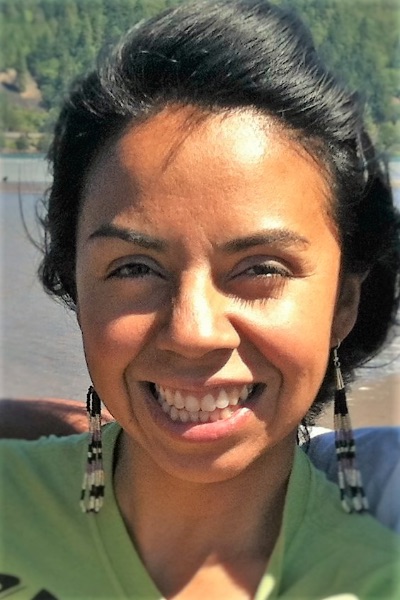In Their Words: Yvonne Sherwood
 Name: Yvonne Sherwood
Name: Yvonne Sherwood
What Award/Scholarship did you receive? Jessica Roy Memorial Award
What year do you expect to graduate? 2020
Where do you call home? Yakama Nation Reservation, White Swan, WA
With all of the choices for college, what made UC Santa Cruz stand out? Its legacy of social justice research and engagement. After becoming a student, I have better understood the relation between human rights issues and environmental issues.
What is your field of focus? Environmental justice, womxn’s organizing, fourth world theory, and settler colonialism.
What do you hope to do once you graduate from UC Santa Cruz? To research, teach, and continue with activism and organizing wherever I find myself.
What is one memorable moment that stands out for you as a student here? There are many but, of course, this award stands out as a significant moment in my own research career because of the recognition of the work’s contributions! In addition to being grateful for the funding, I’m honored and humbled by being chosen by such an important memorial fund. A very deep thank you to the family and the committee.
What is your one piece of advice for incoming students about life at UC Santa Cruz? Today there is a labor union strike supported by several different student groups. In my time here, I have learned that sometimes UCSC Relations will portray strikers in their press releases as not part of our university or, at the least, not educated on the issues. So, to students, know that your experiences are real and that to join a strike does not mean that you are somehow not part of the “university.” In fact, know that YOU, the faculty, and the workers ARE “the people” of the university! Over the years the UCSC management has increased tuition pricing out many low-income students, not responded to student demands for affordable and quality housing, is privatizing our early education learning center (otherwise known as the university childcare), and has not provided a fair and reasonable wage to the majority of the workers who support our daily needs as a university community. In contrast, many individual faculties across the social sciences have vocally opposed these moves. Nevertheless, the management of the university continues to make the space inaccessible to parents, low-income, disabled, first generation, and minoritized students. These issues can lead to experiences (like not having enough food to eat; a safe, warm place to sleep; feeling harassed by campus police officers; feeling stressed about childcare, rent, and time to study) that make you feel alone, outside, and defeated. Know that you are not alone and that students, faculty, and donors who are also part of this university are working, researching, and organizing to combat these intersecting issues. A part of this process is also supporting strikers by not crossing picket lines and advocating for them wherever you are situated.
How will this scholarship impact your academic life/research? The award provided funding to me to attend the International Indian Treaty Council and hear from people working across the United states and at the U.S./Mexico border, in the Artic, across Latin America and in the Pacific about environmental and human rights issues. It made me aware about the American Indian Movement’s (AIM’s) contribution to first organizing the council and how people continue to organize against oppressive state policies and within the United Nations.
